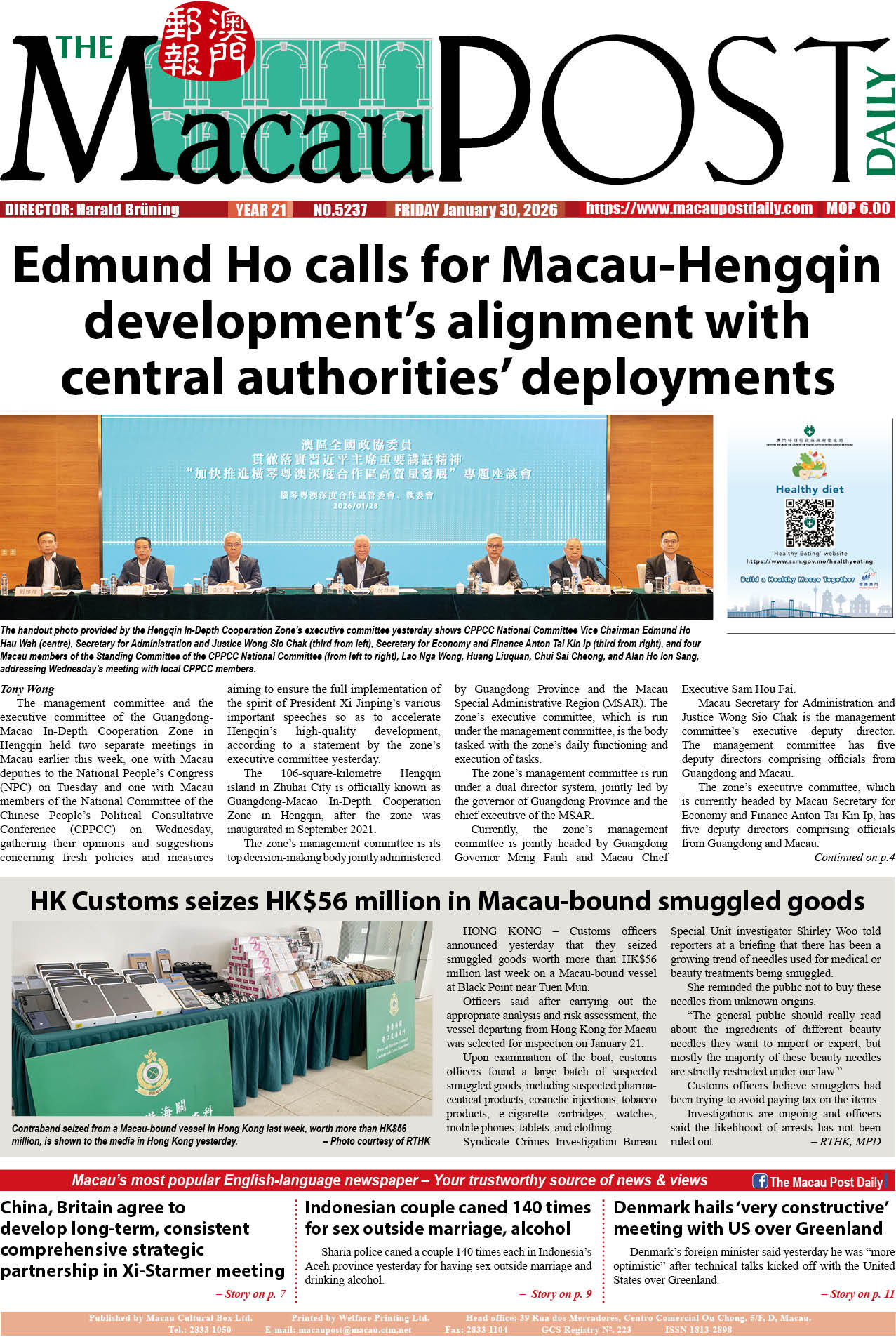The Macau government’s Novel Coronavirus Response and Coordination Centre announced in a statement yesterday that upon arrival in Macau all those who had visited Zhangjiajie city in Hunan province on July 17 or after must undergo hotel quarantine for a period lasting up to 14 days after they had left Zhangjiajie.
The Macau government has rolled out the measure, which took effect at 00:00 today, after considering the risk of the occurrence of COVID-19 transmissions in Zhangjiajie.
According to yesterday’s statement, those who had visited Zhangjiajie on July 17 or thereafter but entered Macau before the measure took effect last night must report their respective travel history on their Macau Health Code. The statement said that they are required to practise “self-health management” for a period lasting up to 14 days after leaving Zhangjiajie. During their “self-health management” period, according to the statement, they are required to undergo a number of free-of-charge nucleic acid tests (NATs) by making an appointment on https://app.ssm.gov.mo/mandatoryrnatestbook.
However, the statement pointed out that the negative results of the nucleic acid tests (NATs) cannot be used for crossing the Macau-mainland border – i.e. the results will not be displayed on their Macau Health Code. The statement said that those who need to travel between Macau and the mainland have to book a nucleic acid test on the government’s appointment system for members of the general public – for which they have to pay a testing fee of 80 patacas each time.
Meanwhile, in another statement last night the centre also urged those in Macau who watched a performance in Zhangjiajie on Thursday night last week to “immediately” call the centre on 2870 0800 for “follow-up action”. The statement, which did not elaborate on what kind of follow-up action the centre intended to take, noted that the Zhangjiajie authorities announced yesterday that COVID-19 transmissions had occurred among members of the audience in the show that was conducted from 6 p.m. to 7 p.m. on Thursday last week.
According to mainland media reports, the performance, called Meili Xiangxi, has four sessions every night, with each lasting an hour. Each session can accommodate an audience of up to 3,000. “Meili” means charm, while “Xiangxi” means the west of Hunan province. Zhangjiajie is located in the north-western part of the province.
Despite that fact that Zhangjiajie so far has not reported any new local COVID-19 cases, COVID-19 transmissions might have occurred in the city, according to the mainland health authorities, because a family of three who had visited Zhangjiajie was confirmed as COVID-19 patients in Sichuan’s provincial capital of Chengdu on Tuesday. Also on the same day, a woman who had visited Zhangjiajie was confirmed as a COVID-19 patient in Dalian city in Liaoning province.
Zhangjiajie has a population of 1.5 million. The city is famed for its Wulingyuan sandstone pillars, a UNESCO World Heritage Site.
Macau nearly reaching 500,000 jabs
Meanwhile, the centre announced in a separate statement yesterday that as of 4 p.m. yesterday, 497,048 doses of COVID-19 vaccine had been administered to 280,803 people in Macau, comprising 62,828 who had received their first jab and 217,975 who had received their second jab.
Macau’s COVID-19 vaccination rate stood at 41.1 percent as of 4 p.m. yesterday – i.e. over 40 percent of the population has received at least one jab.
A total of 21 adverse events were reported in the past 24 hours (until 4 p.m. yesterday). The total number of adverse events since the start of the vaccination drive stood at 2,124, or 0.43 percent of the total number of jabs, including six serious cases.

This undated file photo released yesterday by TDM and taken from the official Sina Weibo account of Meili Xiangxi shows the audience watching a performance in Zhangjiajie.








